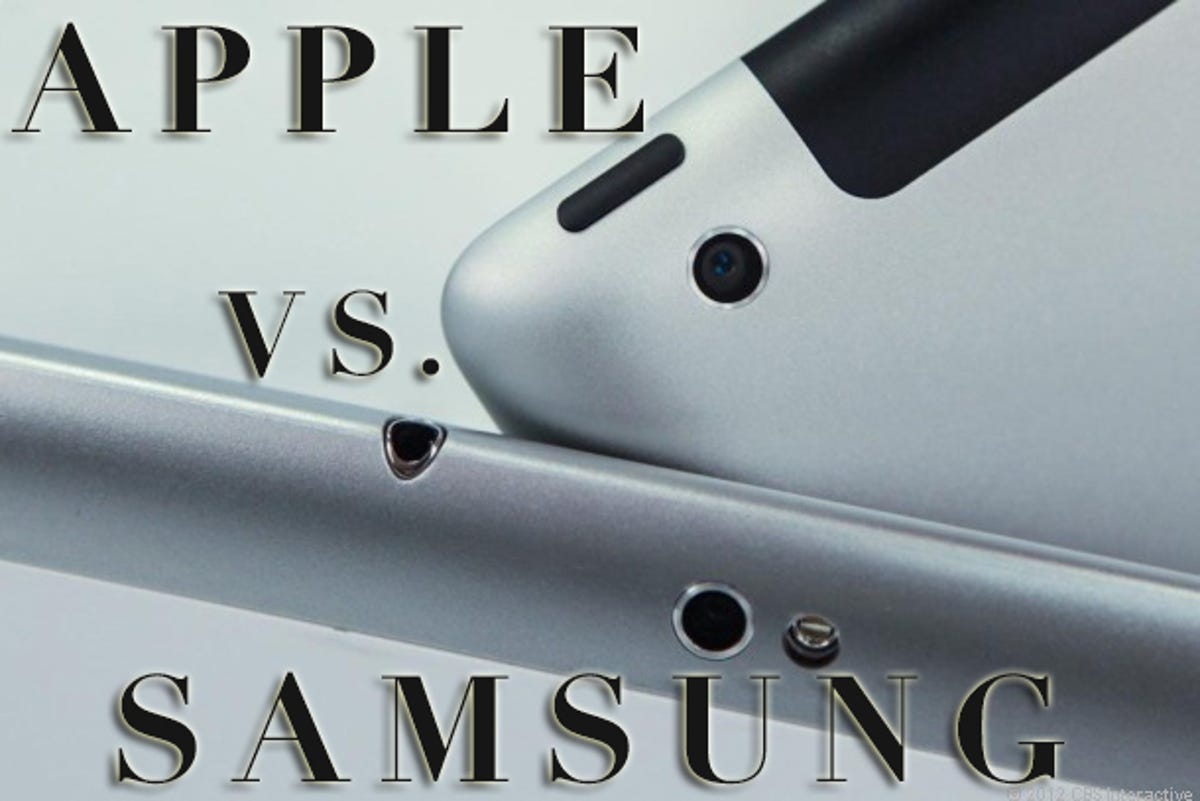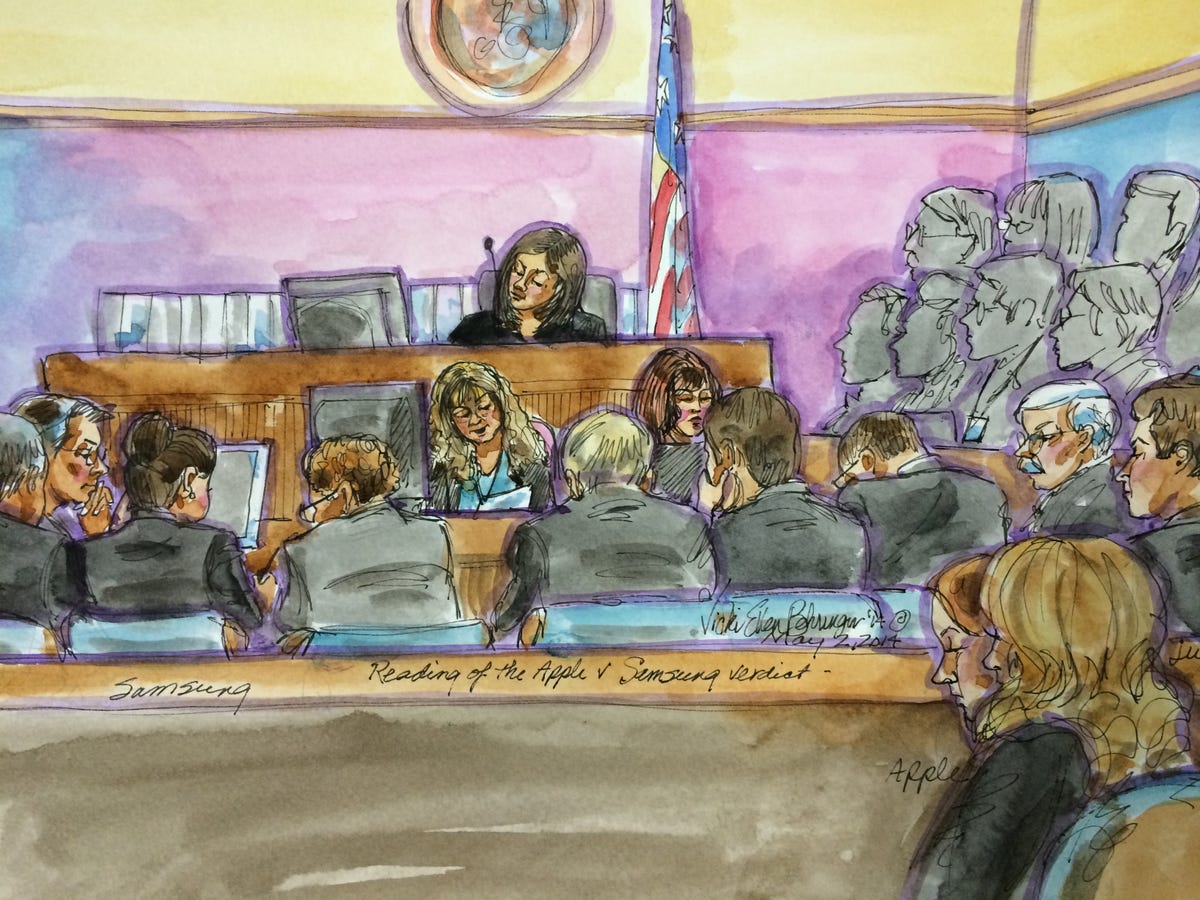
Apple and Samsung on Tuesday said they have agreed to settle all lawsuits filed against each other outside the United States, ending some aspects of their long-running patent dispute but allowing the companies to continue their litigation in the US.
“Samsung and Apple have agreed to drop all litigation between the two companies outside the United States,” the companies said in a statement. “This agreement does not involve any licensing arrangements, and the companies are continuing to pursue the existing cases in US courts.”
Apple and Samsung declined to comment beyond the joint statement.
Apple and Samsung have been fighting over the designs and functionality of their smartphones and tablets since 2011. For the companies, the long-running battle is about more than money. What’s really at stake is the market for mobile devices. Apple now gets two-thirds of its sales from the iPhone and iPad; South Korea-based Samsung is the world’s largest maker of smartphones; and both want to keep dominating the market. At the same time, they’re also facing tougher competition from new vendors in emerging markets, such as Xiaomi in China.
See also
- Apple v. Samsung patent trial recap: How it all turned out (FAQ)
- Key Samsung lawyer sees patent war ending soon — with Apple getting nothing
- Apple, Samsung win some, lose some in patent case
- In patent war, Apple and Samsung may both be losers
While Apple and Samsung have fought long and bitter patent battles in the US, they’ve also duked it out in courts in Asia and Europe with mixed results. A Japanese high court upheld a lower court ruling last year that Samsung did not infringe on an Apple patent related to synchronizing music and video on Galaxy smartphones and tablets with servers. After a German court initially sided with Apple’s patent infringement claims and banned the sale of Samsung’s Galaxy Tab 10.1 within its borders in 2011, Samsung eventually was allowed to sell a revised version of the device.
In total, the companies battled in eight courts outside the US — Australia, France, Germany, Italy, Korea, Japan, The Netherlands, and the UK. Samsung also has sought to invalidate some of Apple’s patents in Spain.
Just because the companies have settled their cases outside the US doesn’t mean the battle is over.
“At this point it’s hard to say whether this is the beginning of the end, or a mutual decision on the part of Apple and Samsung to focus their energy even more intently on US litigation, which was always the highest stakes between them,” said Brian Love, assistant professor at the Santa Clara University School of Law.
Apple initially filed suit against Samsung in April 2011 in the US, accusing its rival of copying the look and feel of its iPhones and iPads. Samsung countersued, and it also launched suits against Apple outside the US. Apple countersued in five of the countries.
The initial case in the US went to trial in August 2012. A nine-person jury sided with Apple on a majority of its patent infringement claims against Samsung. It awarded Apple $1.05 billion in damages, much less than the $2.75 billion sought by the Cupertino, Calif., company. Samsung, which asked for $421 million in its countersuit, didn’t get anything.


Vicki Behringer
However, Judge Lucy Koh in March 2013 ordered a new trial to recalculate some of the damages in the case, striking $450.5 million off the original judgment against Samsung. A jury in November awarded Apple an additional $290.5 million in damages, bringing the total damages to $930 million. A third trial, which ended in May, came back more mixed, with Samsung ordered to pay Apple $119.6 million in damages and Apple ordered to pay $158,000 for infringing one of Samsung’s patents.
Apple may have won about $1 billion from Samsung, but it hasn’t seen any money yet. And it also was awarded much less than it asked for, particularly in the 2014 trial. Apple had wanted $2.2 billion for Samsung’s accused infringement of five patents, but it received less than 6 percent of that total. In addition, neither company has been successful in banning its rivals products from sale in the US, something that could have had a real impact.
The long-running spat also doesn’t exactly reflect well on either company. Apple and Samsung are two of the most secretive companies in the technology industry, with little known about the inner workings of their operations or about executives’ private comments — until the recent patent cases. Each side presented damning evidence during the trials about its rival and used its competitor’s words, taken from emails and internal presentations including competitive analysis and marketing documents, against it. That included former Apple CEO Steve Jobs’ determination to launch a mobile operating system, which powers Samsung’s smartphone, and a plan by a Samsung executive to use Jobs’ death in 2011 as a marketing opportunity.
Following the most recent trial, Samsung attorney John Quinn told CNET that Apple wouldn’t see a dime from the most recent judgment. Quinn — a partner at the law firm of Quinn Emanuel Urquhart & Sullivan, which represents Samsung, Google, and other Android handset makers — also predicted that Apple would soon put an end to its patent infringement lawsuits because it hasn’t been able to shift market demand away from smartphones built on Google’s Android software.
The first US case is going through the appeals process, and the companies also plan to appeal the most recent verdict. Apple also has settled its lawsuits with other handset vendors using Google’s popular Android operating system, including HTC and Motorola Mobility.
Updated at 8 p.m. and 8:30 p.m. PT with additional details.



